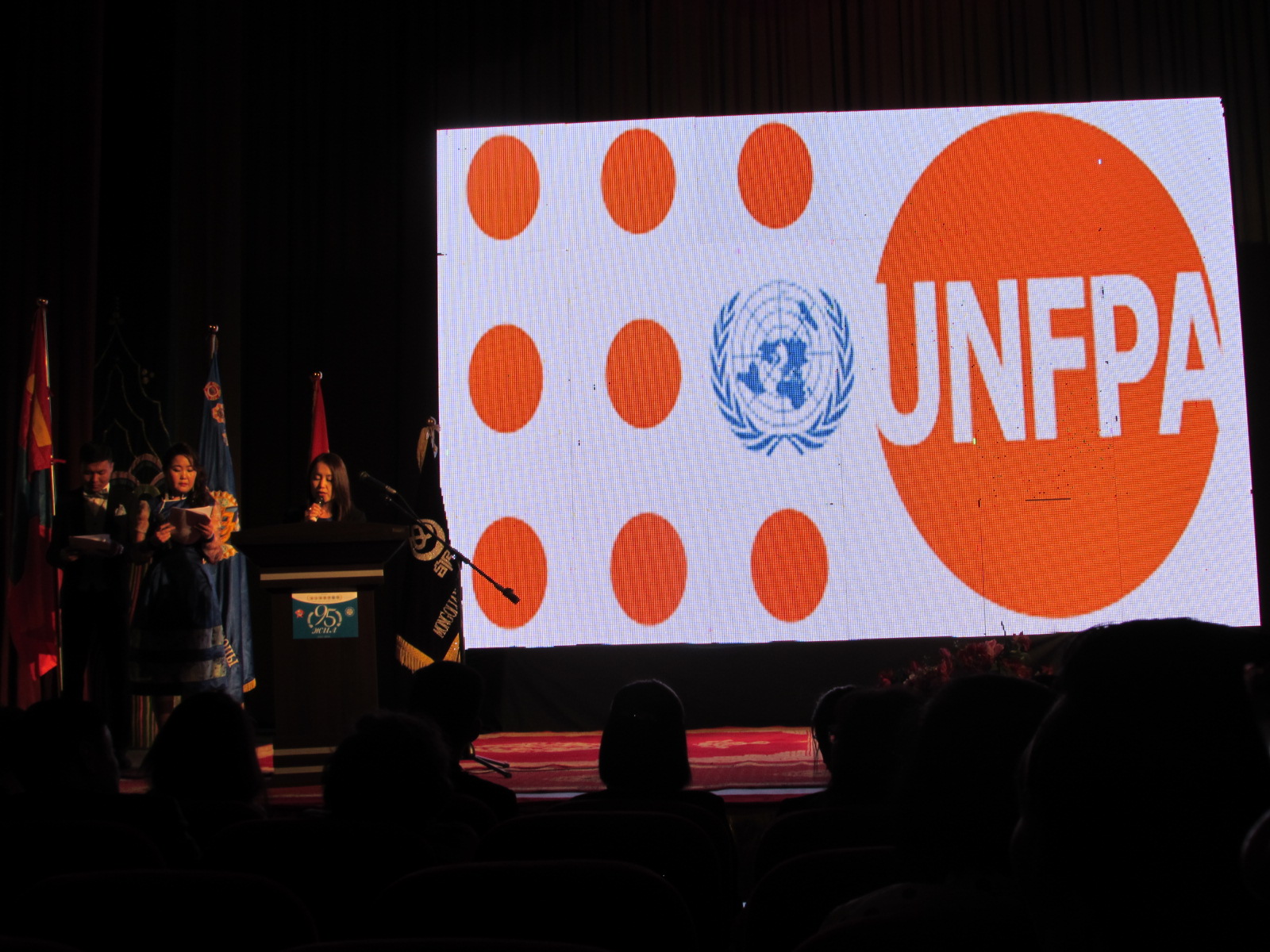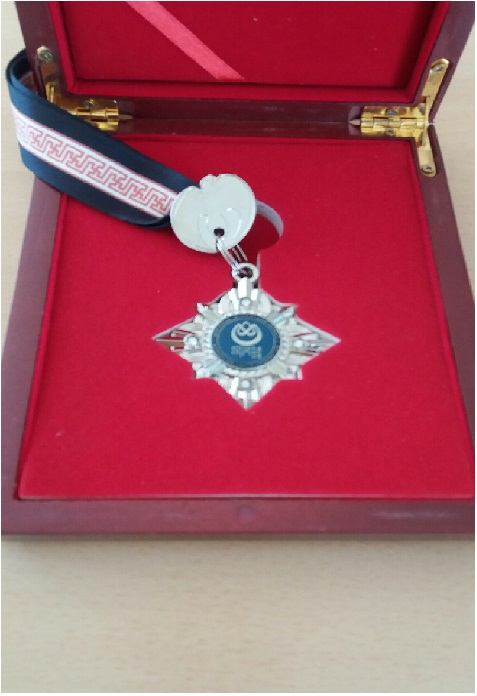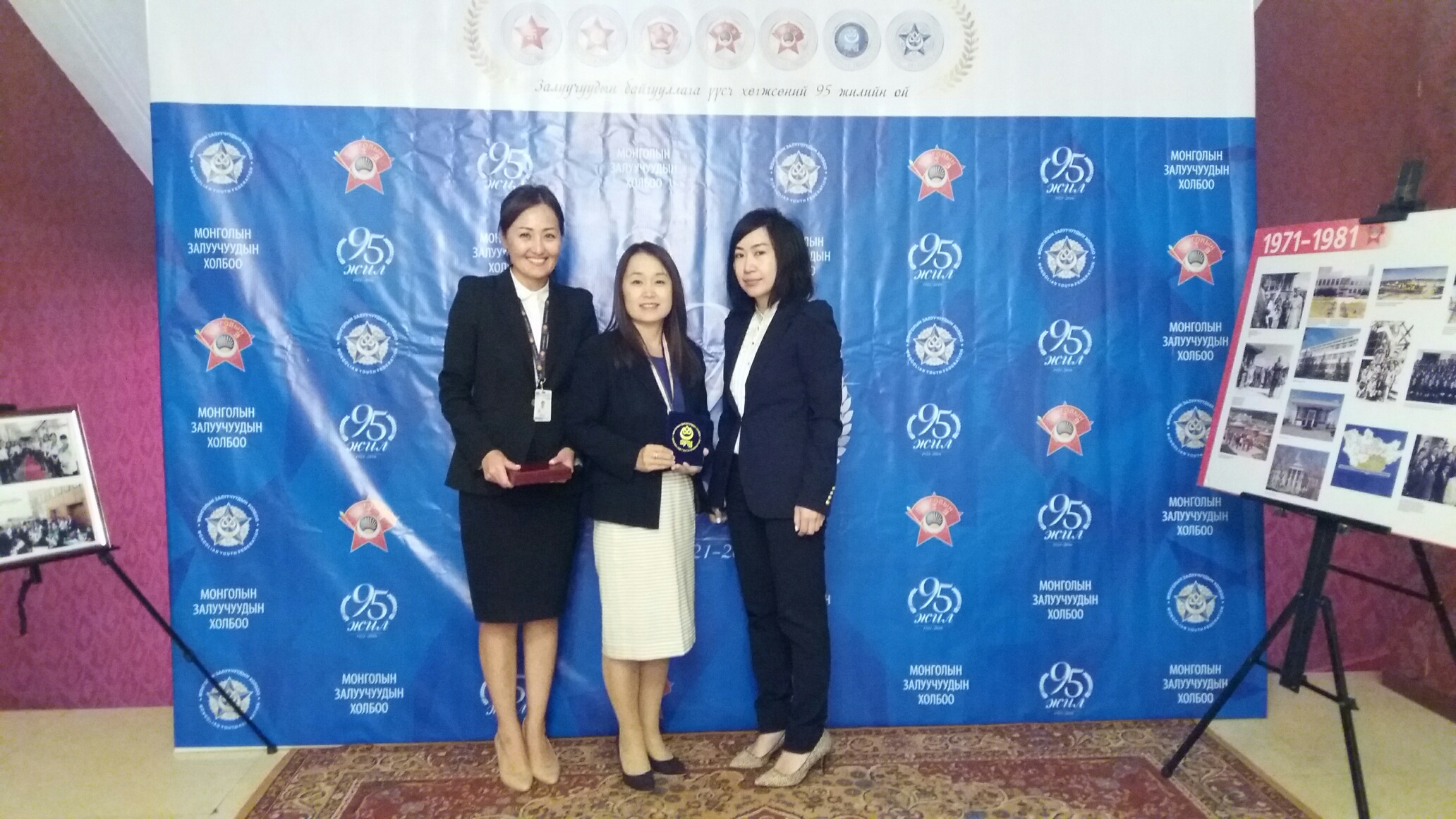For contributions to youth development, the Mongolia Youth Federation awards UNFPA Mongolia with the “Silver Star for Solidarity” medal.
Ulaanbaatar - On August 25, 2016, at the 95th Anniversary of the Youth Organizations headed by the Mongolia Youth Federation, which recognized individuals and organizations that promote youth welfare and development, UNFPA Mongolia was awarded with the “Silver Star for Solidarity” medal.

“This has been a real honor,” says Naomi Kitahara, UNFPA Representative. “It reaffirms and recognizes what we’ve always believed in our work, which is that young people play a central role in promoting the well-being of their families, communities and nations. Investing in and supporting young people ensures that they fulfill their potential, enabling them to contribute meaningfully to their country.”
According to the Mongolia Human Development Report 2016, youth aged 15–34 years represent the largest demographic group in Mongolia at more than 1 million. This accounts for 34.9 percent of the population and a significant share of the people of working age. This also represents a historic opportunity for Mongolia to harness the potential of its large youth population. “UNFPA is proud to partner with young people in Mongolia to promote their participation and leadership, enabling them to overcome barriers, spearhead innovations and unleash their full potential”, Ms. Kitahara said during her speech at the 95th Anniversary event, emphasizing that now more than ever, “UNFPA also calls on governments, development partners and other influencers, including the Mongolia Youth Federation, to support the enactment of policies that promote young people’s development and human rights. “

UNFPA Mongolia continues to support young people through its Youth Development Programme which aims to provide quality life skills education for young people and foster positive, responsible, and self-reliant behavior. To achieve this goal, UNFPA has worked with governmental and non-governmental organizations to develop and approve a national youth policy, to increase the availability of quality life skills education, to promote youth empowerment and violence-free environments particularly at schools, and to ensure the availability of adolescent and youth-friendly health services that meet the needs of young people, especially the marginalized. Some notable achievements of the Youth Development Programme in the past year, co-funded by UNFPA, the Swiss Agency for Development Cooperation, the Government of the Grand Duchy of Luxembourg, and Oyu Tolgoi include:
Contributing to the National Youth Policy: Last year, steady progress was made on the development and finalization of the State Policy on Youth and the corresponding National Programme through the Ministry of Population Development and Social Protection. Partnerships were forged with youth CSOs to ensure youth participation in the development and review of the policy documents, which will institutionalize youth rights and participation within government structures.
Life Skills Education: With UNFPA support for the Ministry of Education, Culture and Science, Life Skills Education (LSE) is now institutionalized into the curricula of grades 6 through 9 in general education schools, benefitting 114,000 students in target provinces. As a result of UNFPA collaboration with the Ministry of Labor, technical and vocational education institutions have similarly incorporated life skills education into their programmes, benefitting an estimated 27,000 students a year. To further support the institutionalization of LSE and life skills-based health education, including comprehensive sexuality education, 32 Life Skills Education Halls (LSEH) have been piloted in select secondary school, technical and vocational institutions, colleges and lifelong education centers.
Youth Development Centres (YDCs) : A total of 16 community-based YDCs, have been established with support from UNFPA, providing LSE and other services especially for out-of-school and unemployed youth, in underserved communities and are designed as safe, nurturing environments for youth to access life skills education, training, counselling and peer support. For example, YDCs have been able to give access to life skills classes to at least 4,278 participating youth last year.
And in a great example of collaboration with the private sector, Oyu Tolgoi LLC and UNFPA worked together to establish the YDC in Khanbogd, signing a landmark project agreement to benefit Mongolian youth. The project seeks to build resilience of young women and men in Khanbogd soum of Umnogobi province, a mining development area, and increase their capacity to benefit from the region’s rapid socio-economic growth.

By: A. Esguerra


